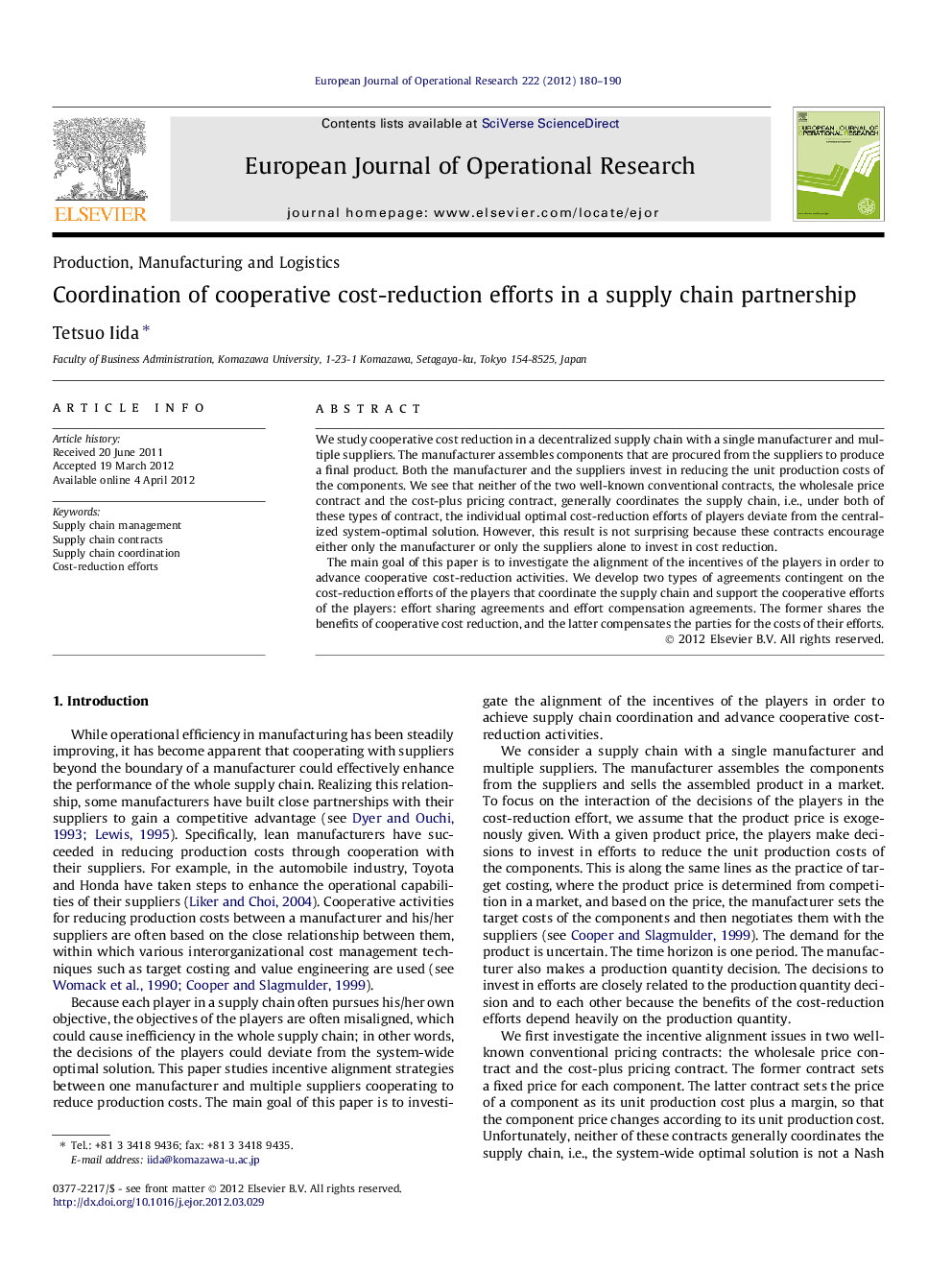| Article ID | Journal | Published Year | Pages | File Type |
|---|---|---|---|---|
| 480306 | European Journal of Operational Research | 2012 | 11 Pages |
We study cooperative cost reduction in a decentralized supply chain with a single manufacturer and multiple suppliers. The manufacturer assembles components that are procured from the suppliers to produce a final product. Both the manufacturer and the suppliers invest in reducing the unit production costs of the components. We see that neither of the two well-known conventional contracts, the wholesale price contract and the cost-plus pricing contract, generally coordinates the supply chain, i.e., under both of these types of contract, the individual optimal cost-reduction efforts of players deviate from the centralized system-optimal solution. However, this result is not surprising because these contracts encourage either only the manufacturer or only the suppliers alone to invest in cost reduction.The main goal of this paper is to investigate the alignment of the incentives of the players in order to advance cooperative cost-reduction activities. We develop two types of agreements contingent on the cost-reduction efforts of the players that coordinate the supply chain and support the cooperative efforts of the players: effort sharing agreements and effort compensation agreements. The former shares the benefits of cooperative cost reduction, and the latter compensates the parties for the costs of their efforts.
► We study the coordination issue of cost-reduction efforts in a supply chain. ► A manufacturer and each supplier can cooperatively reduce the production cost. ► The conventional contracts cannot coordinate the supply chain. ► To achieve coordination we develop two agreements contingent on the efforts.
